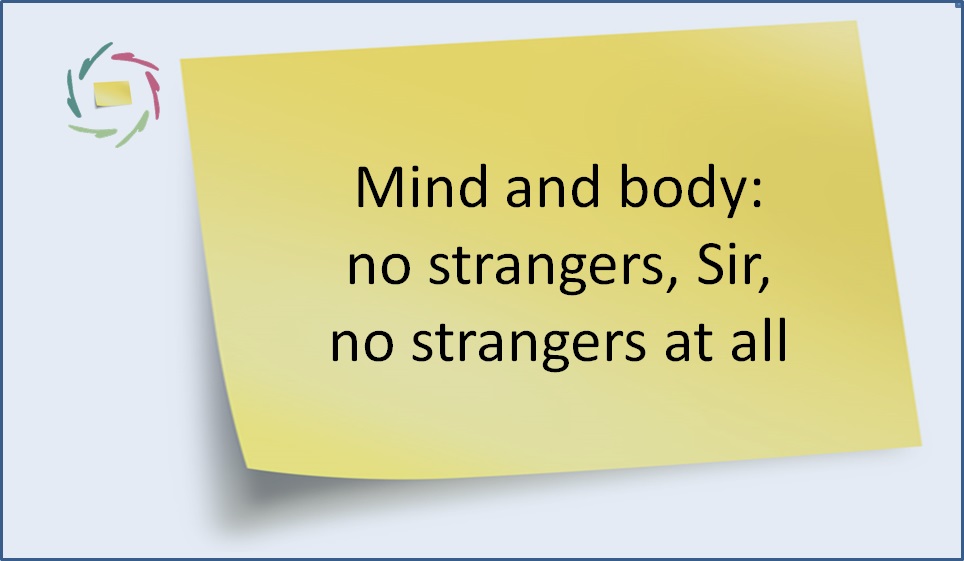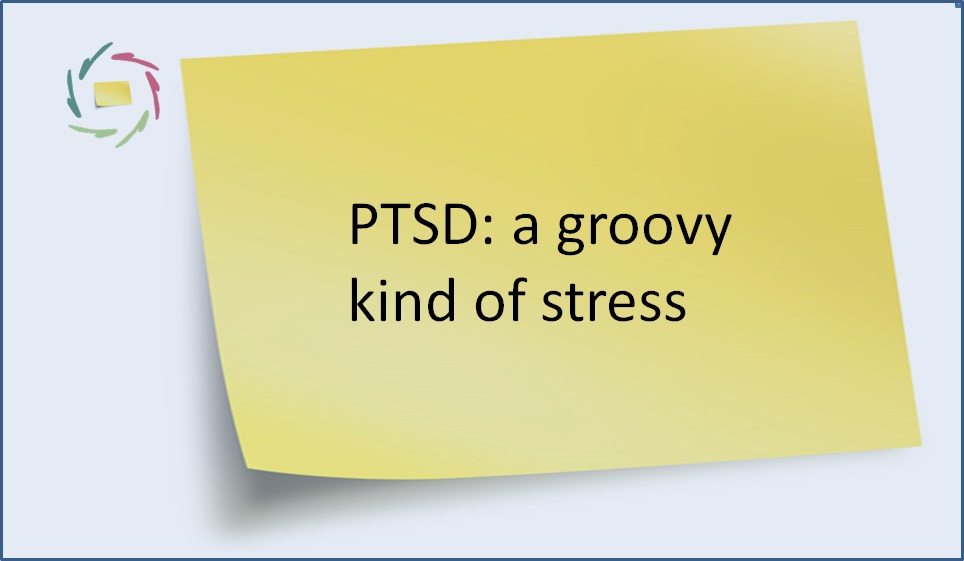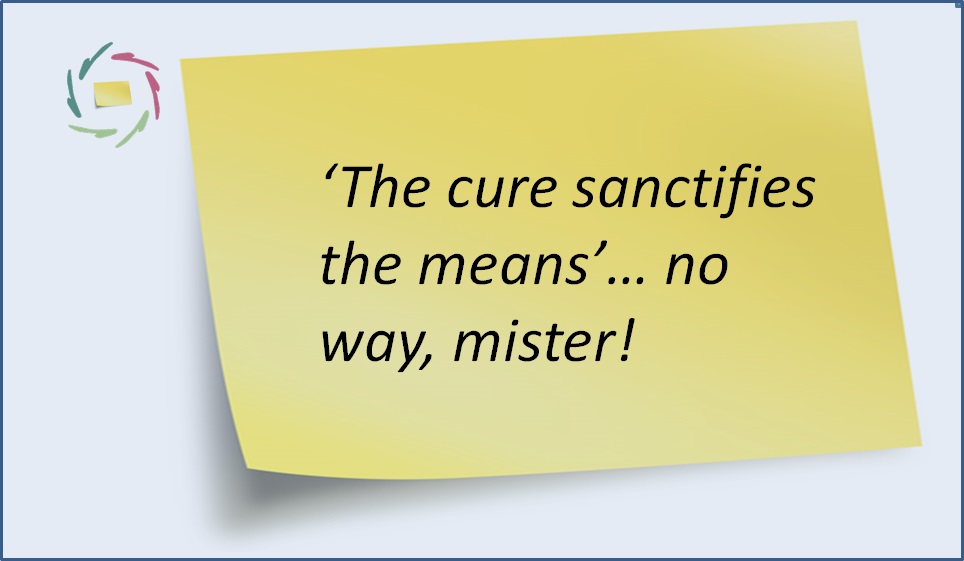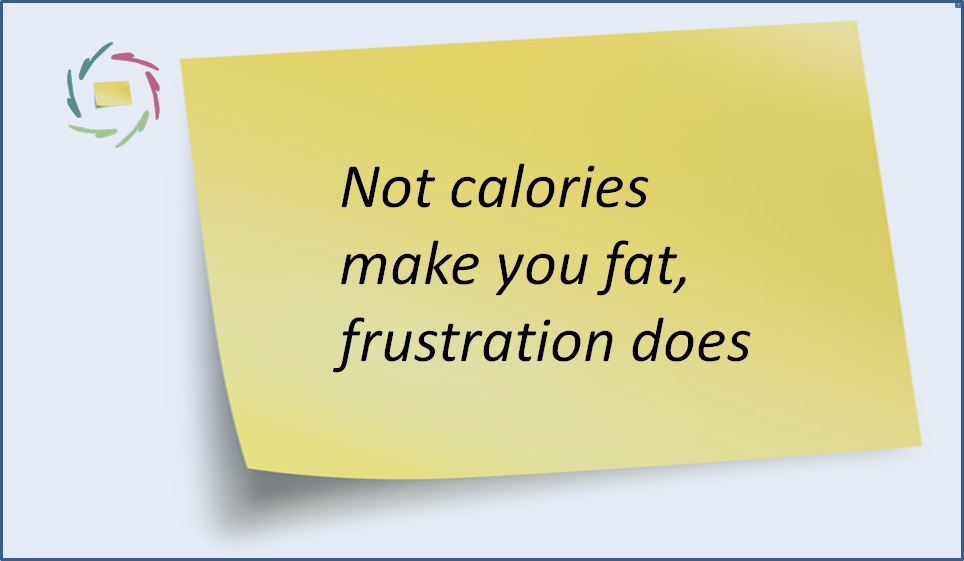49. Mind and body: no strangers, Sir, no strangers at all

Even to this day, to many -most?- people, mind and body seem to be very much NOT profoundly connected to each other. Mind being unphysical and ‘volatile’, body being only physical and very, very concrete. So how can the unphysical influence the physical?
◊◊◊
That’s the question.
And what an incredibly weird question it is!
◊◊◊
‘Time’ is unphysical. So how can it influence matter? Nevertheless we see that all things change in the course of time. Does ‘time’ change these things?
◊◊◊
Of course not.
◊◊◊
The crux is that unphysical ‘things’ can indeed not change physical things. Time cannot change matter. Mind cannot change matter. Mind can NOT change the body.
◊◊◊
Hurray!
But you’re not rid of me yet…
◊◊◊
‘Time’ is nothing but an abstraction that we humans use to enable us to better understand ‘change’ itself. Things change. We see the change. We call into being an abstraction with which to structure this change in our, well, ‘mind’ of course. We even give this abstraction a name: ‘time’.
◊◊◊
Smell a rat yet?
◊◊◊
‘Mind’ is nothing but an abstraction that we humans use to enable us to better understand what our body does in certain, really very complex ways, like writing or reading and ‘thinking’ about it. The body changes. We see the change (such as: the throwing away of this piece of writing). We call into being an abstraction with which to structure this change in our, well, ‘mind’. We even give it a name.
◊◊◊
Yep. ‘Mind’ only exists in ‘mind’ itself…
◊◊◊
… which makes it a bit weird, but only slightly. In the end, what we call ‘mind’ is unphysical and only an abstraction made by ourselves. This abstraction cannot do anything, let alone change our body. But nevertheless the body changes and it clearly changes also by that what engenders the abstraction ‘mind’, namely: the body itself. Or should we say: it’s ‘time’ that does all the changing? Well, it’s your choice, but I wouldn’t complicate things too much either.
◊◊◊
So what is going on in the end?
◊◊◊
The body changes itself, also in really insanely complex ways. Some of these insanely complex ways are better understood if we for simplicity’s sake start talking about ‘mind’. There is nothing wrong with this, as long as we don’t make any one of two mistakes: either to think that ‘mind’ is really something unphysical that influences the physical, or to think that ‘mind’ is really something unphysical and therefore unrelated to changes in the physical world.
◊◊◊
Mind IS related to bodily changes, and very deeply so, because that’s what the abstraction we made in the first place, is all about. There is even no real obligation to make this abstraction. But then we end up with, in the end, an even much more complex problem of communication about many things. I would say: use your mind as well as you can!
◊◊◊


